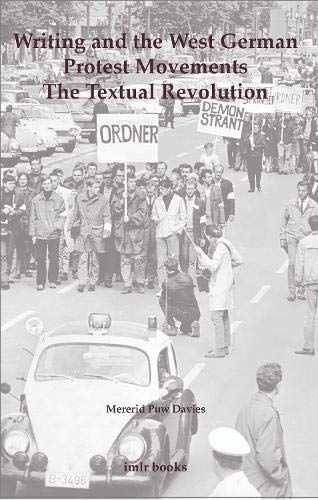
Writing and the West German Protest Movements The Textual Revolution
The 1960s protest movements marked an astonishing moment for West Germany. They developed a political critique, but are above all distinctive for their overwhelming emphasis on culture and the symbolic. In particular, reading and writing had unique prestige for protesters, who produced an extraordinary textual culture which was by turns polemical, witty, provocative, reflective and offensive. The avant-garde roots of anti-authoritarianism are often as palpable within it as a debt to high literature; but due to its sometimes (apparently) vehemently anti-literary tone, it is frequently overlooked by traditional criticism. This volume outlines an anti-authoritarian poetics by presenting close readings of some emblematic texts, many of them forgotten, others better known. The study embeds its analyses in historical, cultural, political and aesthetic contexts, in order to illuminate some representative moments and preoccupations in protest writing, and it argues that this prolific textual culture exists in a complex tension between utopian impulses and the shadows of the past.